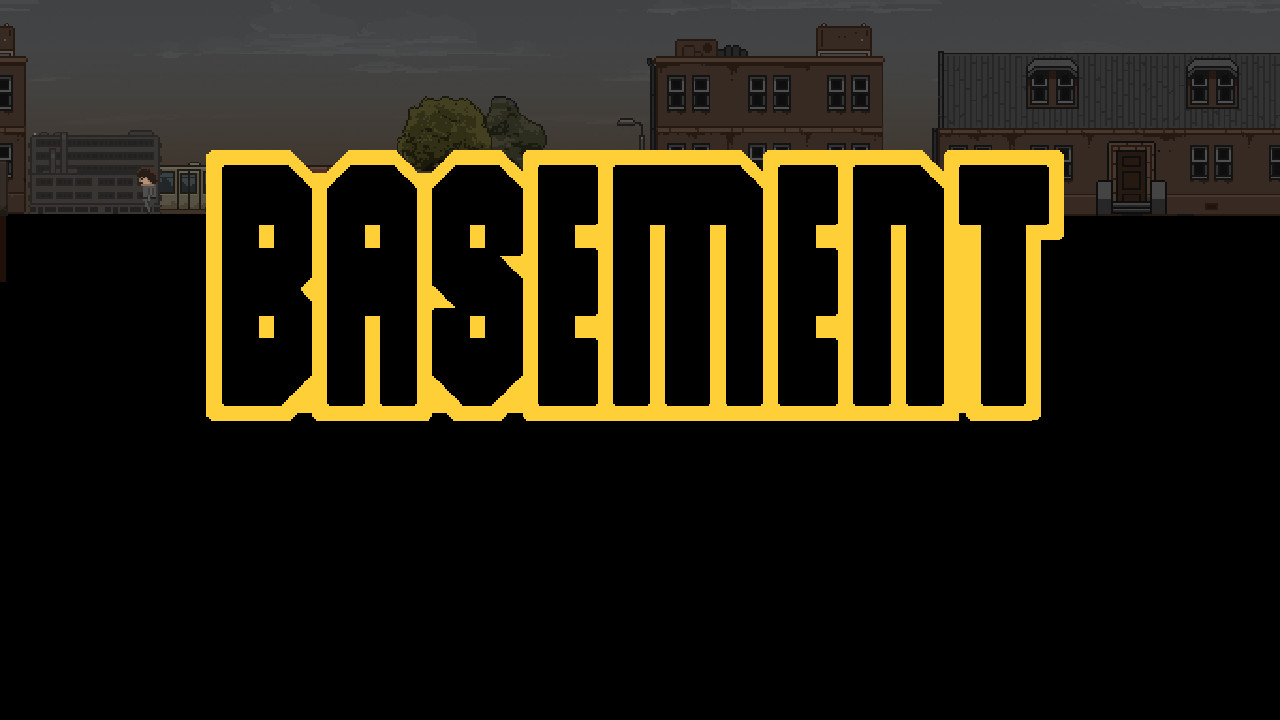
Basement
Developer: Halfbus
Publisher: Halfbus
Platform: Linux, Mac, Windows (Previewed)
Release Date: 30 April 2015
Price: $8.99 USD – Available Here
Basement is a business management sim that lets players build their drug empire from a few rooms in a small basement into a sprawling, multi-building behemoth. The game started its life out at the Ludum Dare 29 game jam and snagged 11th place at the competition. Basement was then successfully funded a few months later on Kickstarter, allowing Halfbus to turn Basement into a full game.
Currently, Basement is on Steam Early Access. The version we had a chance to preview has most of the main gameplay features implemented along with six scenarios and a sandbox mode. There is still a few features that the developers have not yet implemented, but the Basement still feels like a pretty coherent game in its current state.
Basement doesn’t have much of a story right now. Whether a full blown campaign is in the future or just some small dialogue is in the future is yet to be known. Currently, there isn’t much writing at all. The tutorial is mostly visual in nature and is enough to get players started.
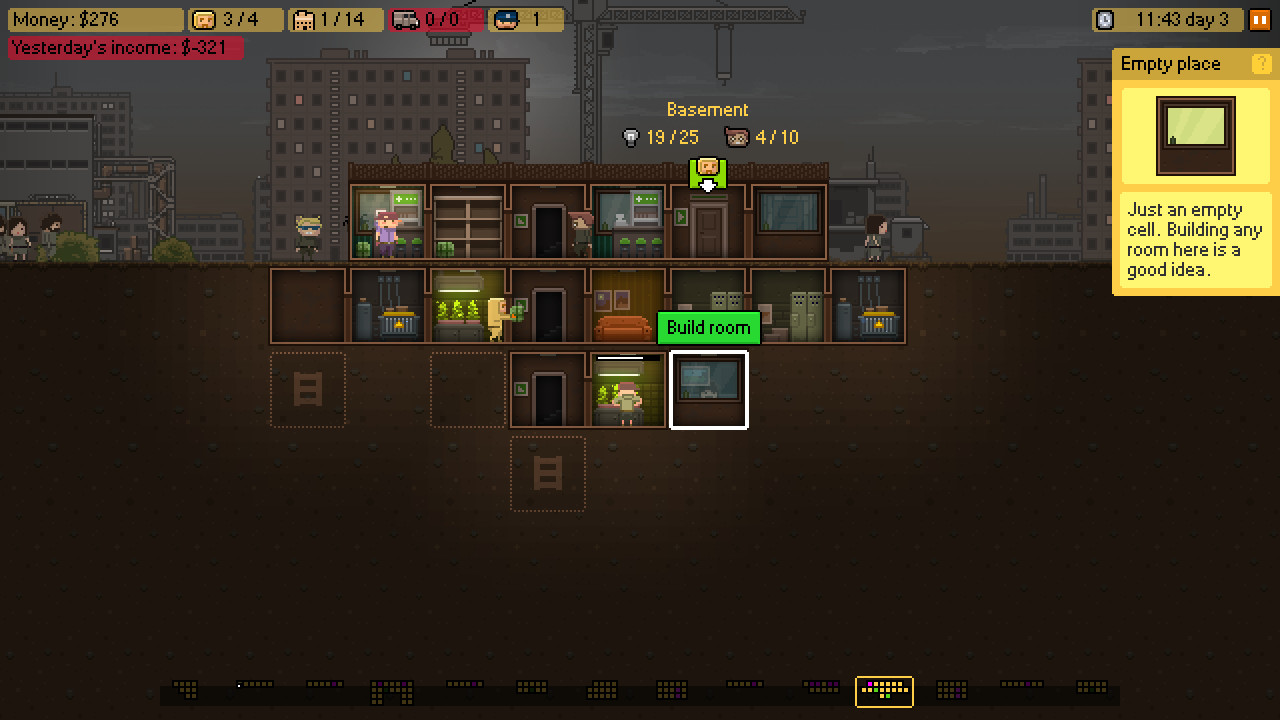
Breaking Basement down to its most basic gameplay, players will need to manufacture drugs in the basement of their building, transport the goods to the ground floor, and then sell it to customers. Employees keep the operation moving, taking breaks as necessary to keep their stamina up. Players will need to manage building layouts and employees to succeed in the game. Buildings are run on power provided by generators built in the basement. Each room has its own construction limitations, power requirements, and upgrade path that will increase the room’s power consumption in exchange for better stats. To create the most efficient layout, players will need to design the shortest travel routes for their employees while maintaining just enough power generators to keep their business running smoothly. Multiple buildings add a layer of complexity to the game. Spreading out the player’s criminal enterprise over multiple buildings decreases the impact police raids have. On the other hand, the business will need to pay to maintain a transportation network that will shuttle drugs and employees between buildings.
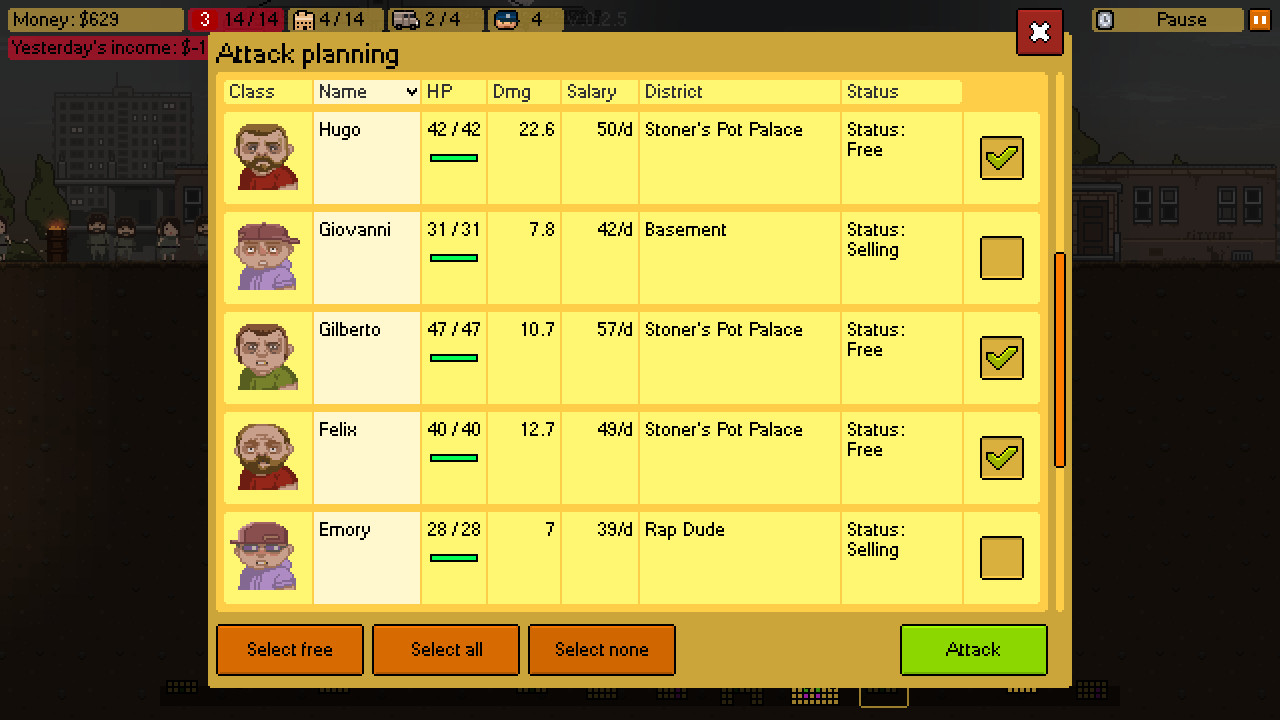
Employee management involves hiring and upkeep of employees who will manufacture, transport, and sell drugs along with attack and defend against enemies. Employees have a hiring fee and a daily upkeep fee that needs to be paid. Those with better stats will cost more and employee stats improve as they gain experience or workout in the training room. Combat is a simple affair in Basement, but one with serious consequences. Players can raid buildings and take them over by sending their staffers over, but the knife cuts both ways as police raids and customers having bad trips can ambush staff. There is not much strategy to combat right now, as each character will deal a set amount of damage every second. It seems that the best strategy for combat is to simply overwhelm the enemy in numbers and hope to keep as many employees alive as possible. Players are able to heal injured employees at the recovery room at the cost of removing them from the production line. Combined with a poorly designed room layout and an injured worker may have to be shuttled across the map to be healed and then returned back to work, resulting in a huge loss in profits.
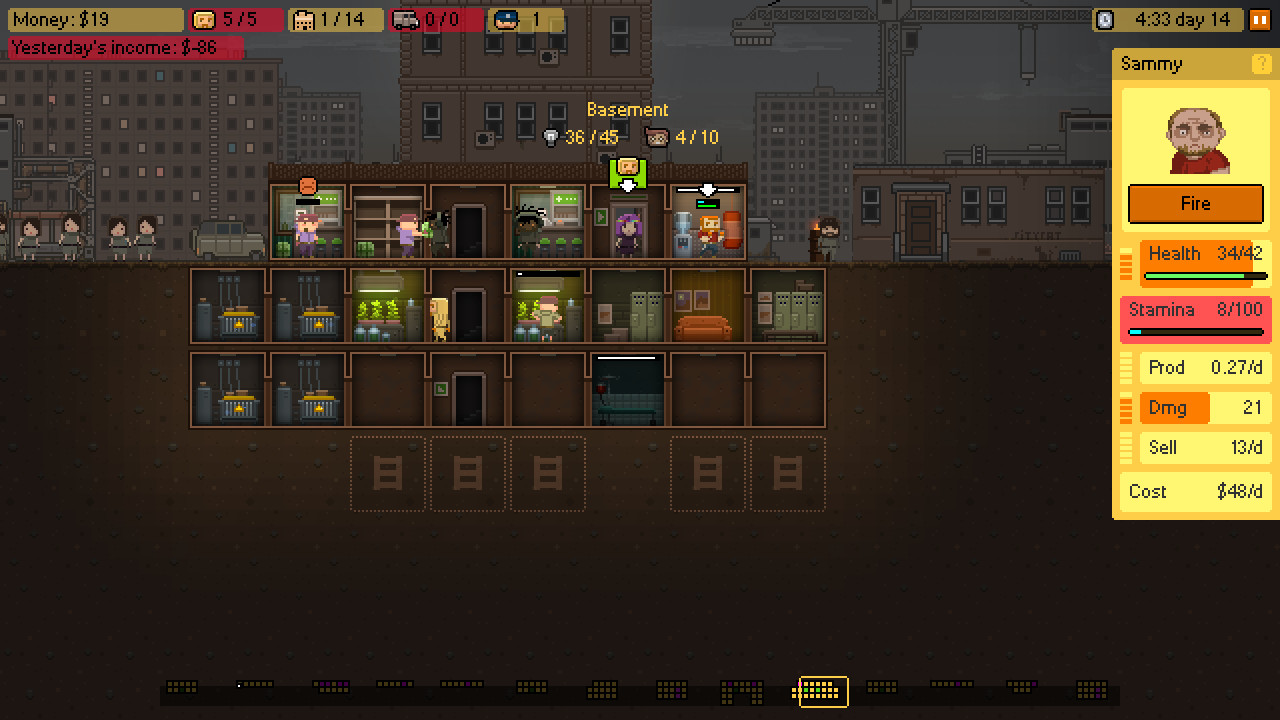
Basement’s late game becomes a bit of a juggling act. On one hand, players need to keep pumping out ludicrous amounts of drugs to pay the bills and keep the profits rolling in. On the other hand, pressure from the police rises, forcing players to either sacrifice money to bribe the police to go away or employees to defeat the intruders.
While Basement is not the most complex game in its current state, it is an entertaining casual game. The simple controls and low system requirements make the game ideal for touch-based laptops and tablets. The six scenarios currently in the game are a good stepping stone into the sandbox mode and grow in difficulty at a good rate. The scenarios serve as a good foundation for a fully-fledged campaign mode to grow from.
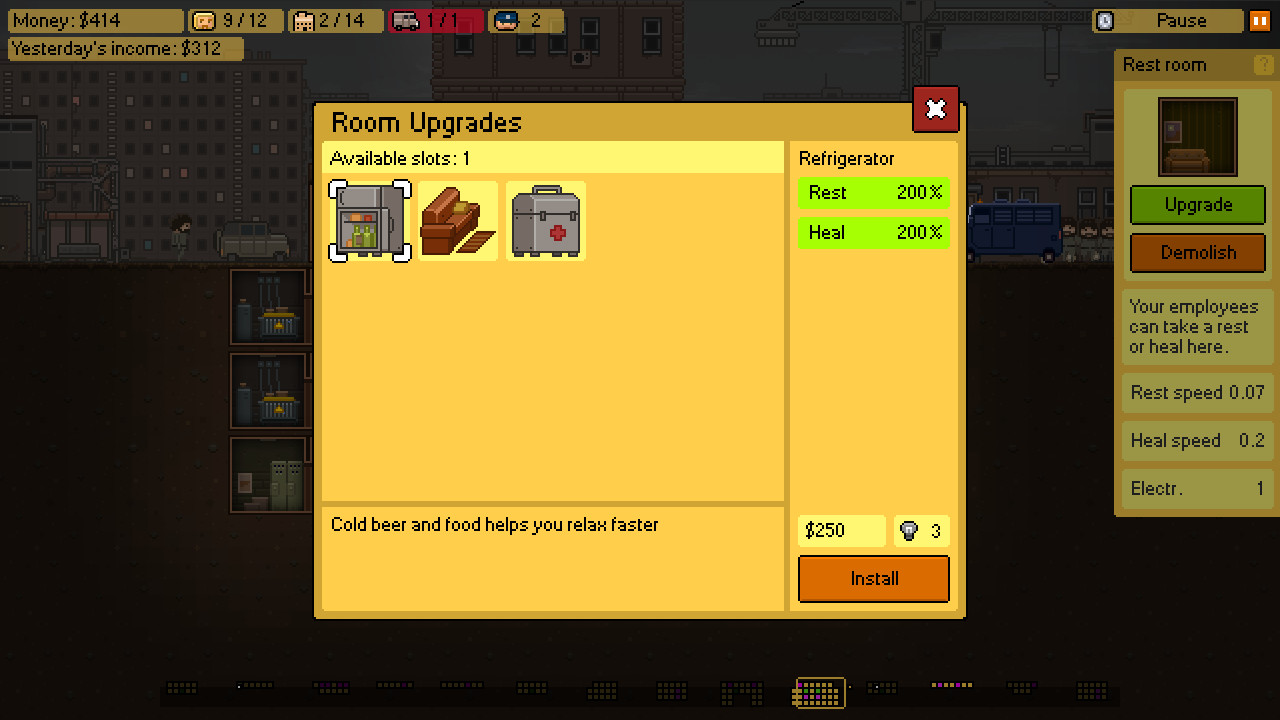
Basement’s audio/visual experience is excellent. There is no voice acting, but the sound effects are enjoyable. The soundtrack has a dark, industrial sound that fits the game’s gritty atmosphere. The soundtrack is a bit small at the moment, so I hope more tracks are added as the game’s development progresses. The art style has a retro 16-bit flair and focuses on a dark colour palette to match the game’s gritty soundtrack.
Basement’s has come a long way from its humble beginnings at the Ludum Dare game jam. Halfbus has turned a neat idea into a decent casual strategy game in its current state. Based on the road map, it looks like some much-needed depth is on the horizon. With hope, Basement will give everyone the opportunity to be their very own Breaking Bad.


